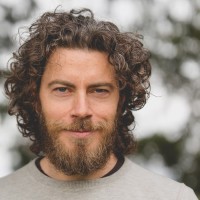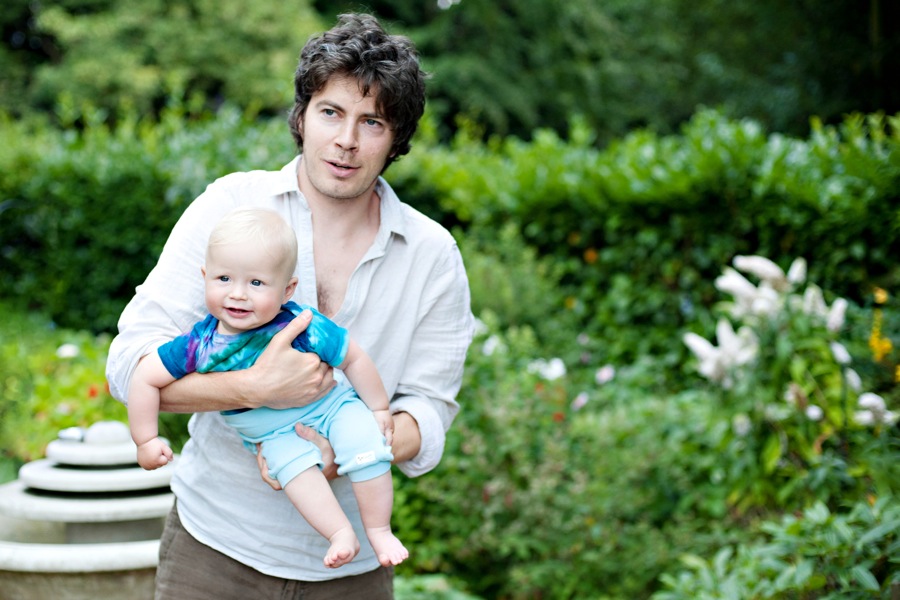by Ben Ralston
I’ll tell you straight: I didn’t have a clue what to do when my son was born.
I had good instincts, I’d read a number of books and done my due diligence, but the stress of the situation I found myself in overwhelmed me. I didn’t have the internal resources to be able to cope because I wasn’t yet a man. I was really a 30 something year old scared little boy, and I found myself way, way, way out of my depth.
This is true for the vast majority of Fathers: they aren’t men yet.
When my son was 2 years old his Mum and I separated, and for a while things got much worse before they got better. Now, everything is cool.
His Ma and I are good friends. And he has two beautiful homes, two sets of awesome friends, two happy parents. He’s an awesome kid and I’m proud of him, proud of the work I’ve done, proud of his beautiful Mama and the relationship I have with her.
I learnt a lot about kids and about parenting along the way, and this is what I’m going to share with you now. My sincere desire is that it helps, because I know how much of a nightmare parenting can be when it isn’t fun.
And I know how fun, and beautiful, and fulfilling it can be when it isn’t a nightmare.
And the difference is very, very, simple.
The first step in understanding the role of a parent is to recognise the simplicity of what children need from us.
They only need two things from a caregiver: Love and Discipline.
They don’t need toys, or for you to drive a fancy car.
They don’t need you to be earning money, or wearing fashionable clothes.
They don’t need screens (they really, really don’t need screens, and more on that later).
They don’t need hospital visits and injections if they’re healthy (especially if you give them the right love and the right discipline).
They don’t need schools or an ‘education system’.
Right now recognise that millions of kids grow up healthy and happy all over the world without any of these things.
So, as a parent, it’s not your responsibility to provide all of those things.
Instead, what they need from you is very, very simple: Love, and Discipline.
LOVE…
…means presence. Attention. Care. Listening. Acknowledgment.
Love means to be seen. To be heard. To be felt. To be touched. To be known. This is love. Can you do that? Of course you can.
Although, if we’re really honest with ourselves, it’s probably a big challenge. Why? Because we weren’t seen, heard, felt, touched, acknowledged, and loved enough when we were kids. Why? Because our parents weren’t. Because their parents weren’t either… and it goes back quite a few generations.
If you didn’t get that level of unconditional love as a child, there’s only one place left in the world that you will learn it: inside of yourself.
Self-love. I’m not talking about some airy fairy new age concept like ‘positive thinking’. I am talking about self-care, self acceptance… actually, all of the above. Do you see yourself? Do you listen deeply to your inner self, your inner intuition? Do you acknowledge yourself? Do you feel yourself? Are you strongly grounded in your body? Are you deeply, madly, truly and unconditionally in love with yourself.
Probably not. Don’t worry. It’s not because you’re somehow flawed. You didn’t come off the production line like that! It’s because you were never taught, and you never saw modelled, how to love yourself.
So, if you want to give that kind of love to your kid, you have to be able to FIRST give it to yourself. What is required is a commitment to oneself first and foremost.
“I put myself first. I acknowledge that this is missing in my life, and I recognise the importance of this, and I choose to find it within myself”.
After all, this is your life, and you don’t know for sure if you will have another.
Secondly, as I wrote about in my article on healing: take responsibility. Only you can change this. Only you are able to respond in a meaningful way to this inner crisis.
Once you make this commitment to yourself and take responsibility for the problem, healthy transformation is inevitable. The speed at which it happens is entirely up to you.
Of course, you cannot put your parenting on hold while you do this inner work around unconditional love. Kids don’t have a pause button, right?! And I know, some of you are thinking: “sheesh, a pause button would be nice”.
And isn’t that telling about our relationship with our kids these days? That so many of us spend so much time trying to get away from our kids?
You don’t need to put anything on hold while you do this work. Share it with your kids. Don’t hide anything from them, because you cannot: they will feel it deep in their bones and start to distrust you.
Be open with them.
“I’m working on it.”
Already, you are doing a thousand times better job than your parents did with you. And the process of healing this pattern will take some generations…
And then, even as you are working on loving yourself more deeply and loving your child more deeply, you recognise the need for consistent and firm discipline.
DISCIPLINE… means boundaries. It means firm, consistent, unwavering, steady, authority. It means that what you say is what goes, and that if you say ‘jump’ the child must ask ‘how high’?
This is not a question of authoritarianism. Rather, it is the solution to the problem of safety.
A child with no discipline feels profoundly unsafe. And that is the definition, by the way, of Trauma: feeling unsafe.
Failing to give your child healthy boundaries and firm discipline is – literally – traumatising your child.
I cannot emphasise this enough.
If your child knows that she must make her bed, clean her room, feed the goldfish, practice her piano, play outdoors as much as possible, put her plate and cutlery in the dishwasher, clean up after herself, etc, then she not only has a sense of self-satisfaction. She is not only creating good habits for her future life. She also knows her place in the social structure.
She is learning that she is a child. She is learning humility. And she is learning that you, as parent, are responsible and mature and powerful enough to be in control of her environment – so she can relax.
So many children these days are in a state of stress, not relaxed, because they sense that the adults around them are no really in control. No one is responsible. No one is powerful around them. There is no leadership.
This is our innate pack animal instinct.
In a pack of wolves, if there is no clear leadership, there will be a power struggle. This is not good for the pack. All the pack will be uneasy.
If, on the other hand, there is a clear leadership, then the pack is content, harmonious, and organised. Then, the pack can thrive, trusting in the powerful wolf that leads them well.
We too are pack animals – and yes, we are also spiritual beings, but our animal nature must be integrated first before we can explore and express our higher capabilities. We must be human before we can be ‘gods’.
So in the family or – preferably – community ‘pack’, the child looks for leadership. The more clear, confident, and consistent that leadership is, the safer the children feel. And the safer they feel, the more easily they can be children. The more easily they can play, and explore, and learn, and enjoy their childhood.
There is another, very simple, almost primal reason why it is of the utmost importance to give your child a very clear sense of boundaries and discipline:
Imagine you are walking through the woods and a wild animal attacks – you need to know that your child will obey you. If you say “run” you want your child to run!
Imagine you are in a city and a bomb goes off… or war breaks out.. or there is a natural disaster… it’s not time to be setting boundaries then. You want to speak and you want your child to act immediately.
I have seen so many parents who, in that situation, would need to have a 5 minute debate with their child to get her to do as they ask.
So in a nutshell:
Parenting is very simple!
There are only two things required: the ability to lead your child and instil a sense of discipline. And the ability to be truly, deeply present (unconditionally loving) with your child.
Drop everything else and focus on these two things.
The beauty of practicing yoga is that theoretically, you already have a handle on what it means to be truly, deeply present. All you need to is apply that to your parenting!
About Ben
 Photo Credit: Catherine Adam
Photo Credit: Catherine AdamBen Ralston is a therapist, healer, advanced Sivananda Yoga teacher, and writer. His writings have been read by millions of people and can be found on Elephant Journal, Rebelle Society, and various other portals online. He has been teaching Yoga for 16 years and runs a busy international therapeutic practice from his home in rural Croatia.
His therapeutic work is based on healing trauma, and the tools he uses for this are varied – mainly RPT, Shamanism, and energy work. He has also developed some of his own methods, particularly in the area of ‘resource state’ awareness, and boundary reconstruction.
Ben regularly runs retreats around the world combining Yoga and other energetic exercises with his therapy. He would love nothing more than to see you on one of these retreats, since he believes that this approach to personal development is really the only effective way of bringing love and peace to global human society. Check out Ben’s website here. Find out about his next retreat, The Heart of Joy, here.


Leave a Reply